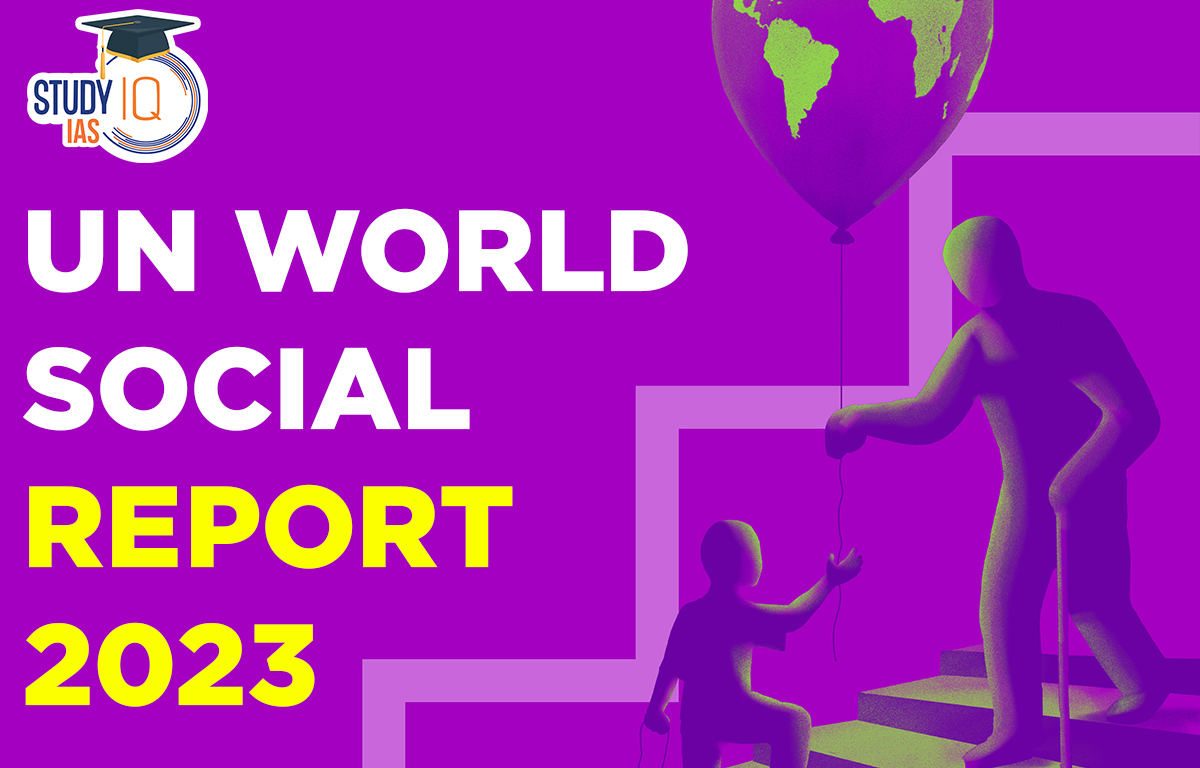Table of Contents
Highlight of UN World Social Report 2023
- Number of persons aged 65 years or older worldwide is expected to double over the next three decades.
- The elderly population will reach 1.6 billion in 2050, accounting for more than 16 per cent of the global population.
- Population ageing is progressing more rapidly in developing countries than it did historically in more developed countries.
- Longer lifespan globally: People are living longer due to improvements in health and medical therapies, greater access to education and reductions in fertility.
- North Africa, West Asia and sub-Saharan Africa are expected to experience the fastest growth in the number of older people over the next three decades.
- Reason: Social and economic improvements is driving age longevity.
- 80+ Rising Faster: People aged 80 and older are the fastest growing portion of the total population in many countries.
- It is projected to increase by more than 200 per cent in the next three decades.
- Inequality in ageing: In almost all societies, women live longer than men on average and the rich longer than the poor.
- Reasons: Poor nutrition and exposure to environmental and occupational hazards that are more common among men and people with limited income and education.
- Impact: Gaping disparities in old age could derail progress made towards achieving the 17 Sustainable Development Goals (SDGs), especially SDG 10 on Reducing Inequalities.
- Developed vs Developing regions: In more developed regions, pensions and other public transfer systems, provide over two thirds of the consumption by older persons.
- In less developed regions, older persons tend to work longer and rely more on accumulated assets or family assistance.
India and Ageing
- In India, by the year 2050, it is expected that the number of elderly in the country would reach 324 million.
- According to the National Commission on Population, share of the elderly (persons aged 60 years and above) in India’s population is growing fast and may reach 18% by 2036.
- According to Longitudinal Ageing Study in India (LASI), least five per cent of India’s elderly population (aged 60 years and above) stated they experienced ill-treatment in 2020.
- The abuse can be classified as physical, sexual, psychological or financial.
- The ill-treatment is relatively more frequent among elderly women and those living in rural areas.
- The obstacle of elder abuse cannot be adequately solved if older people’s essential needs for food, shelter, protection and access to healthcare are not met.
Way Forward
- Effective systems of old-age support: Rights and well-being of older people must be at the centre of collective efforts to achieve a sustainable future.
- Promoting Equal Opportunities: Countries can reap the benefits by giving everyone the chance to grow older in good health by promoting equal opportunities from birth.
- Rethink policies, expand opportunities: Countries must rethink long-held policies and practices associated with livelihoods and work.
- Introducing flexible retirement ages to accommodate a broad range of personal situations and preferences.
- Expanding decent work opportunities for women and other groups traditionally excluded from the formal job market.
- Rethink Social Protection Systems: To secure well-being during older age, and to expand the productive capacity of the economy.
- Focus on active ageing: It allows people to realise their potential for physical, social and mental well-being throughout life and to participate in society according to their needs, desires and capacities.
2021-2030 as the Decade of Healthy Aging
- World Health Organization and the UN have designated 2021-2030 as the Decade of Healthy Aging, building on the Madrid International Plan of Action on Ageing (MIPAA) that aligns with the Sustainable Development Goals.
About MIPAA
- It is the first global agreement which recognises older people as contributors to the development of their societies, and which commits governments to include ageing in all social and economic development policies.
- Madrid Plan makes recommendations such as:
- Discrimination and decision making: Governments should promote the implementation of human rights conventions and other human rights instruments.
- Work and pensions: Older people should be enabled to work for as long as they want to and can do so.
- Health: Older people should have the same access to preventive and curative care and rehabilitation as other groups.
- Supportive environments: Older people should have access to decent housing, receive support if they are care givers and be free from neglect, abuse and violence.


 Micrometeoroids: Tiny Space Particles, M...
Micrometeoroids: Tiny Space Particles, M...
 India Needs a National Insolvency Tribun...
India Needs a National Insolvency Tribun...
 Unlocking the Potential of India–Afric...
Unlocking the Potential of India–Afric...

























